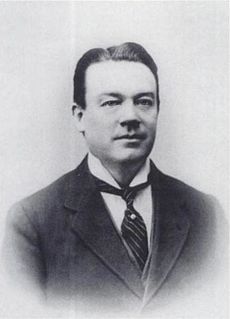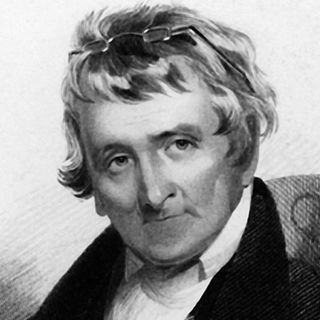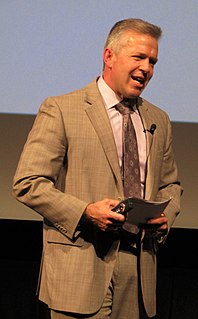A Quote by James E. Faust
Our Redeemer took upon Himself all the sins, pains, infirmities, and sicknesses of all who have ever lived and will ever live.
Related Quotes
The Atonement of Jesus Christ and the healing it offers do much more than provide the opportunity for repentance from sins. The Atonement also gives us the strength to endure "pains and afflictions and temptations of every kind," because our Savior also took upon Him "the pains and the sicknesses of his people" (Alma 7:11). Brothers and sisters, if your faith and prayers and the power of the priesthood do not heal you from an affliction, the power of the Atonement will surely give you the strength to bear the burden.
We all know of course, that we should never ever ever ever ever ever ever ever ever ever ever ever ever ever ever ever ever ever ever ever ever ever ever ever ever ever ever ever ever ever ever ever ever ever ever ever ever ever ever ever ever ever ever ever ever ever ever ever ever ever ever ever ever ever ever ever fiddle around in any way with electrical equipment. NEVER.
Let us, at any rate, give heed to suffer joyfully the crosses that God sends us, because they all, if we are saved, will become for us eternal joys. When infirmities, pains, or any adversities afflict us, let us lift up our eyes to heaven and say, "One day all these pains will have an end, and after them I hope to enjoy God forever."
So today we celebrate the gift of victory over every fall we have ever experienced, every sorrow we have ever known, every discouragement we have ever had, every fear we have ever faced-to say nothing of our resurrection from death and forgiveness for our sins. That victory is available to us because of events that transpired on a weekend precisely like this nearly two millennia ago in Jerusalem.
To judge sins is the business of one who is sinless, but who is sinless except God? Who ever thinks about the multitude of his own sins in his heart never wants to make the sins of others a topic of conversation. To judge a man who has gone astray is a sign of pride, and God resists the proud. On the other hand, one who every hour prepares himself to give answer for his own sins will not quickly lift up his head to examine the mistakes of others.
Time will pass, and we shall go away for ever, and we shall be forgotten, our faces will be forgotten, our voices, and how many there were of us; but our sufferings will pass into joy for those who will live after us, happiness and peace will be established upon earth, and they will remember kindly and bless those who have lived before.
The cumulative weight of all mortal sins--past, present, and future--pressed upon that perfect, sinless, and sensitive Soul! All our infirmities and sicknesses were somehow, too, a part of the awful arithmetic of the Atonement. (See Alma 7:11-12; Isa. 53:3-5; Matt. 8:17.) The anguished Jesus not only pled with the Father that the hour and cup might pass from Him, but with this relevant citation. 'And he said, Abba, Father, all things are possible unto thee; take away this cup from me.' (Mark 14:35-36.)
It is difficult to look at any newborn baby and accept that he or she will necessarily encounter pain, challenges, disappointments, and hardships in life. Yet even the Savior needed to "go forth, suffering pains and afflictions . . . of every kind" (Alma 7:11), the only difference being that Jesus, though tempted, did not sin (Hebrews 4:15; see also D&C 45:4). Even harder to comprehend, however, was how that precious Babe of Bethlehem, whose birth we celebrate each Christmas, would one day bear the weight not only of our sins but also all our infirmities.
In our prehistoric past, we would have lived in extended families, surrounded by kin whose interests we might have wanted to promote because they shared our genes. Now we live in big cities. We are not among kin nor people who will ever reciprocate our good deeds. It doesn't matter. Just as people engaged in sex with contraception are not aware of being motivated by a drive to have babies, it doesn't cross our mind that the reason for do-gooding is based in the fact that our primitive ancestors lived in small groups.
We laugh, we cry, we work, we play, we love, we live. And then we die. ... And dead we would remain but for one Man and His mission, even Jesus of Nazareth. ... With all my heart and the fervency of my soul, I lift up my voice in testimony as a special witness and declare that God does live. Jesus is His Son, the Only Begotten of the Father in the flesh. He is our Redeemer; He is our Mediator with the Father. He it was who died on the cross to atone for our sins. He became the firstfruits of the Resurrection. Because He died, all shall live again.





































